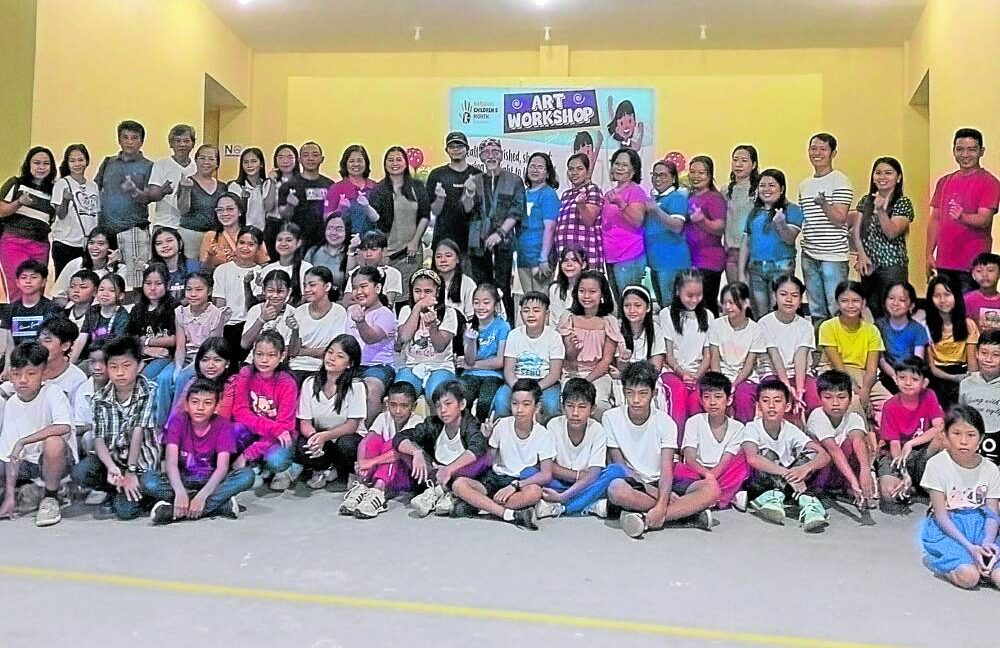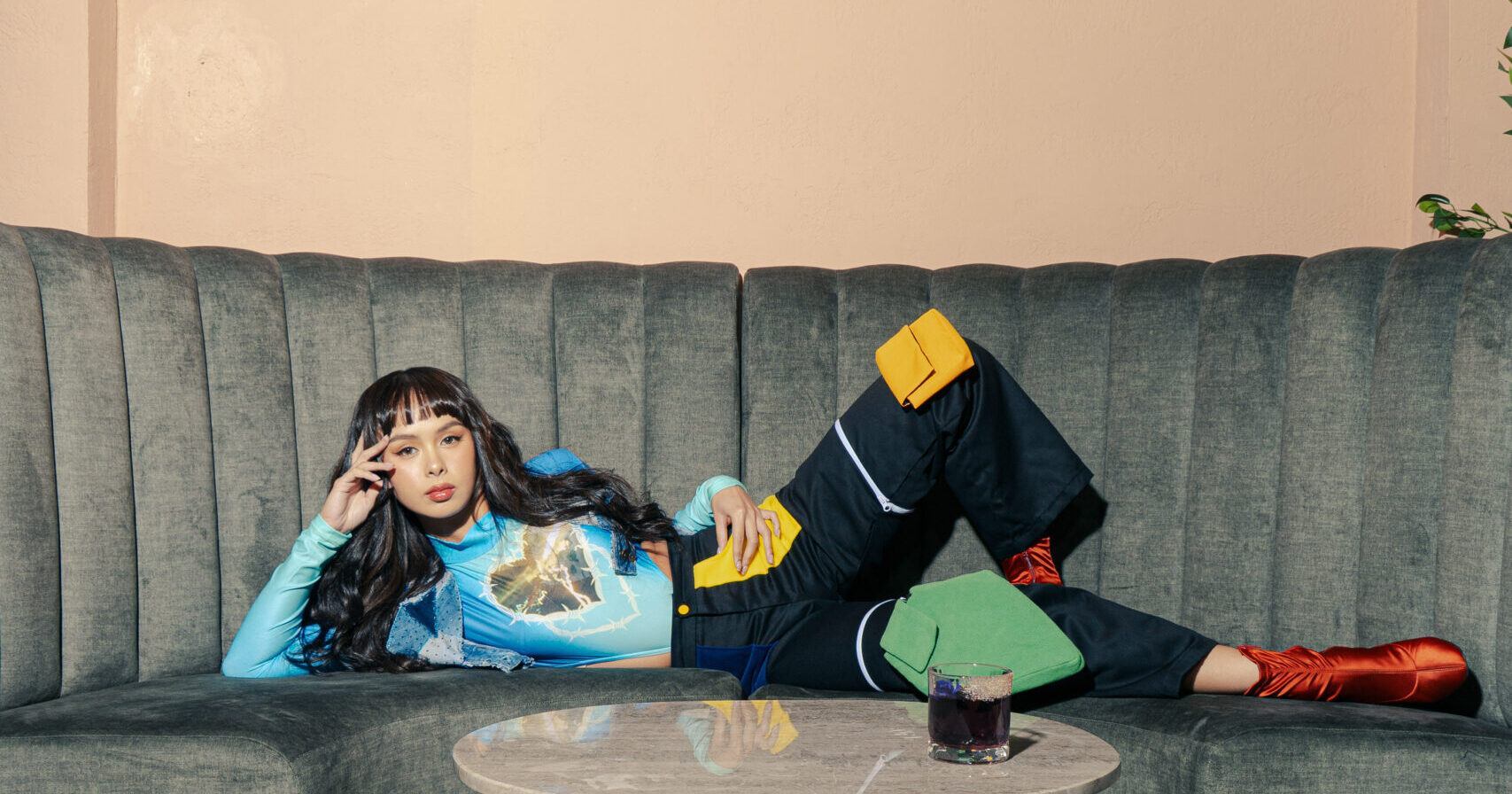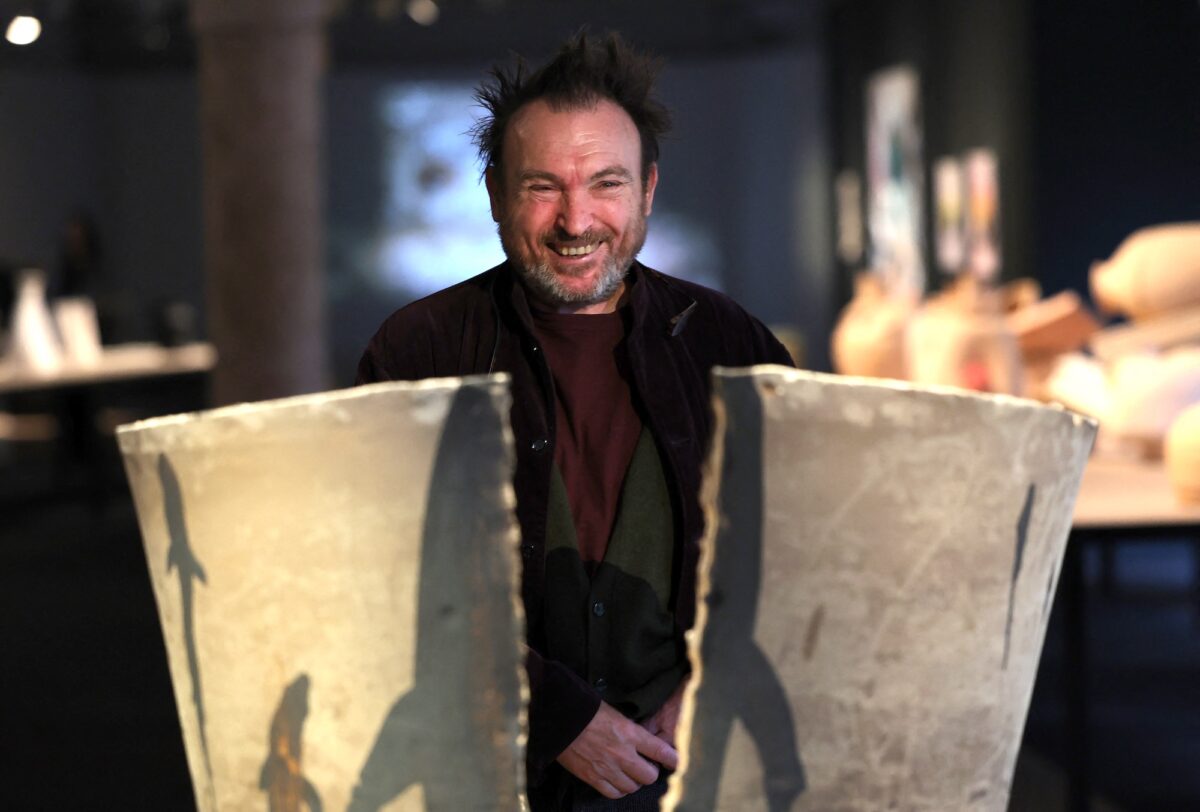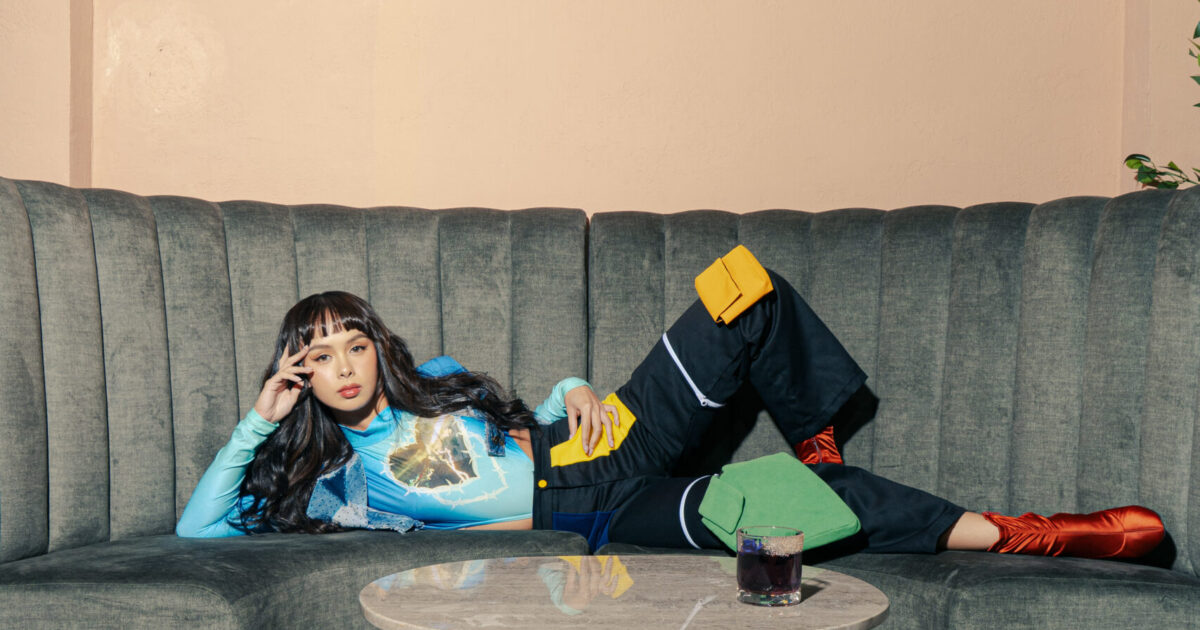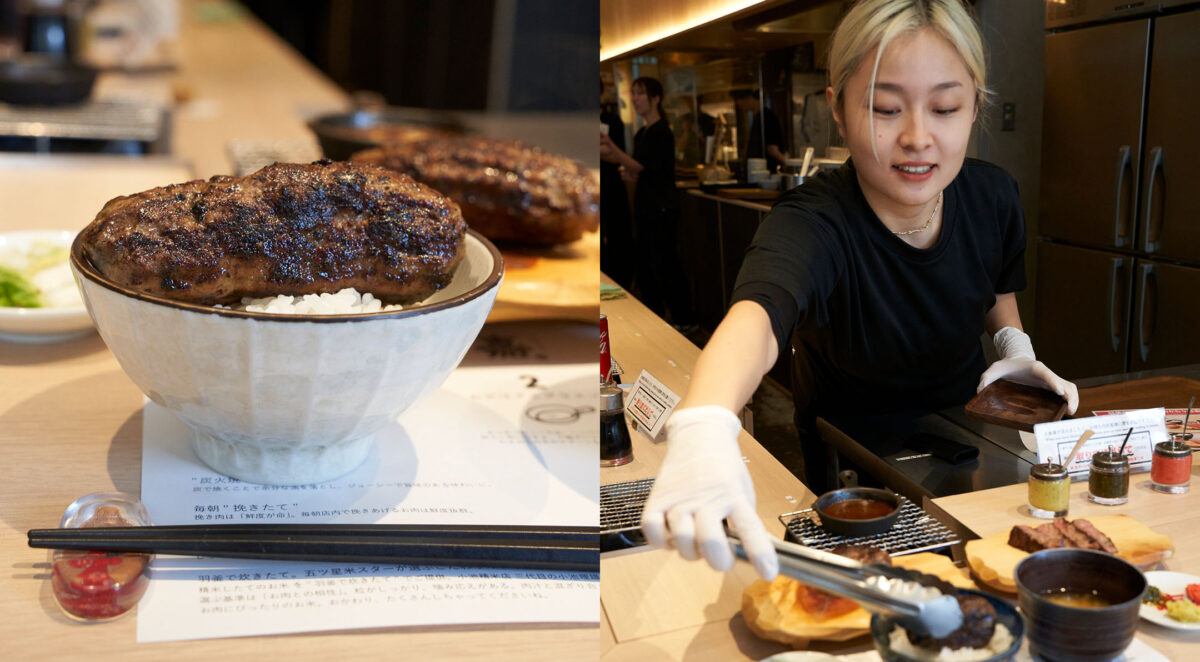
An activity was underway in the spacious, spic-and-span evacuation center in the town of Dipaculao in the scenic province of Aurora, which faces the Pacific Ocean, with its surfing community, roiling waters, forests and mountains and spectacular rock formations in Baler Bay fronting the De la Torre Beach Resort.
Children could be seen all over the place, and there were many tables and chairs. On each table were palettes, pencils, sketching pads, brushes, bathroom pails (the ubiquitous Pinoy tabo) with water, plus other paraphernalia of visual artists.
Then everyone was called to the stage for the obligatory photo opportunity so that proceedings could start: students, school teachers, district supervisors of the Department of Education, parents, workshop officials, art instructors and guests. This was a big art workshop for grade school, intermediate and high school students in the municipality, organized by the Municipal Social Welfare and Development.

In a function room of the evacuation center, which sometimes doubles up as an activity center, there was a parallel seminar going on for 66 youths, 48 students at the elementary level and 18 from high school. The emphasis this time was on Value Formation and Leadership Training.
Rowena A. Asan, municipal social welfare and development officer, speaking about the art workshop, said a total of 72 grade school and high school students were participating in the workshop; these came from 29 public schools, two integrated schools and one private school. Ages ranged from 9-12 for the elementary students and 13-17 for the high schoolers. Three promising students from each school were selected and there was a teacher present from each school.
Watercolor challenge

“Our aim is to develop consciousness and skills among the youths,” Asan said. Another byproduct, she indicated, is to reinforce the discipline presumably being instilled in the schools.
Vice Mayor Franklin J. Reyes was the guest of honor and the main art teacher for the students was Tom Allison Verano, 32, a freelance artist who specializes in teaching watercolor to children. “I relate my experience to them,” he said. “I tell them how I started. This is my passion. Kailangan masipag (you need to be enthusiastic).”
Explaining his craft, Verano said “You need the right art materials for watercoloring, the water has color when you paint. This become transparent when you paint. The water has color, and this becomes transparent when it dries. Once you make a mistake you cannot cover this up; that’s why they say watercoloring is hard.”
Of the kids he was mentoring during the workshop, he could tell those who were really serious: “Those who were attentive, who kept on asking questions.”
Workshop leader was Reynald Palispis, who calls himself a volunteer artist who learned his craft while hanging around in his younger days with veteran artists in Baler. He is also a martial artist and an advocate for the environment. On his manner of mentoring the young ones, he said, “I give them a little explanation of the theoretical component. And then they need to go actual, to manage their perception.”

There were those who learned quickly, Palispis said. And there was whose who “have an inclination.” A small percentage of the participants were only now exposed to art.
His technique focused on the color wheel, a pie chart with slices of color gradations of red, yellow, green, gray and dark blue. Palispis is keen on this, although some artists I talked to said it was more appropriate for grade school students, and not high schoolers.
“The color wheel is basic and will make you understand the foundation of painting,” Palispis said. “It is very universal, and with it you can identify millions of colors. You will see this once you identify with the color wheel. All international artists begin with this.”
The workshop ended with many of the students proudly holding aloft their finished work and posing with their parents or teachers. Was the workshop just a pleasant interlude in their young lives, or will they go on to become professional artists in later years? Why not? Like classical music, visual art has an aura all its own. —Contributed

